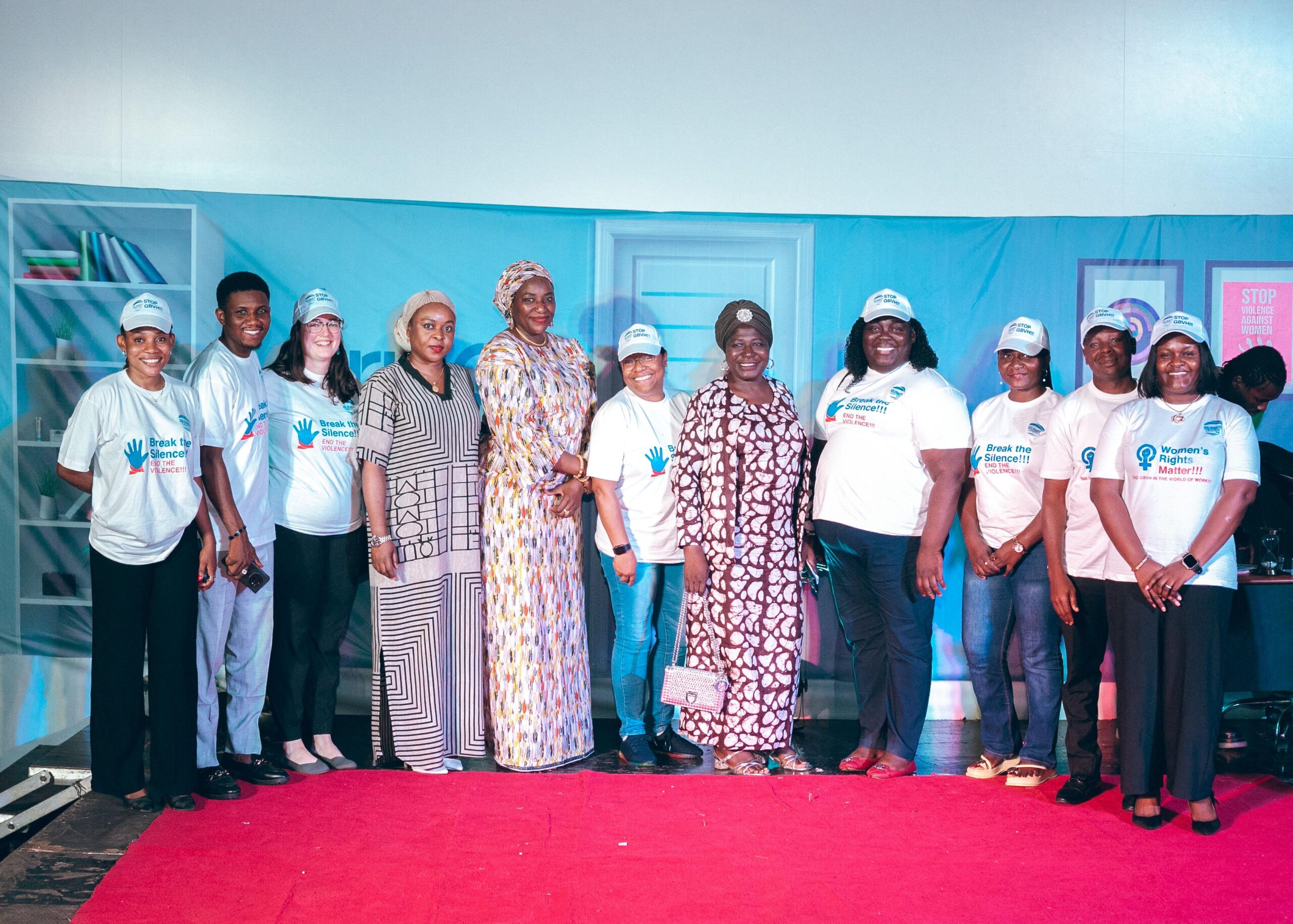By Michael Oche
Utilizing the power of Theatre, trade unions in Nigeria, with the support of Solidarity Center have drawn attention to the prevalence and impact of discrimination and Gender-Based Violence and Harassment (GBVH) in work places, urging the government to ensure effective implementation of the already domesticated ILO Convention 190.
The theatre production, titled “Mista Silas” transcends traditional boundaries; employing poetry, dance, and drama to unveil the stark realities of Gender-Based Violence and Harassment take place in workplaces.
Speaking to journalists on the sidelines, during the stage play in Abuja, comrade Hafsat Shuibu, chairperson of the women commission of the Trade Union Congress of Nigeria (TUC), said despite Nigeria’s domestication of the ILO Convention 190, which seeks to stop Harassment in the world of work, the prevalence of GBVH has continued.
She blamed poor implementation of the laws as a major factor of the inability to curtail the prevalence, saying that trade unions will continue to sustain its advocacy for the enforcement of the C190.
She said, “Gender-Based Violence and Harassment are things we experience almost everywhere around the world. And for Nigeria, you know we are very good with having lots of laws but not implementing them. So we have a lot of laws in place, but implementation is close to zero. And right now we have the C90, and together we can work to put it into use.
Echoing her sentiments, Rita Goyit, Head of the Department of Women and Youth at the Nigeria Labour Congress (NLC), highlighted the collaborative efforts between trade unions and their partners to drive the implementation of C190.
Also speaking, Rita Goyit, the head of department of women and youth at the Nigeria Labour Congress (NLC) said trade unions and its partners are putting together strategies to ensure the implementation of the C190.
“Having successfully championed the domestication of C190, our focus now shifts to its effective implementation. This endeavor requires the collective commitment of government, employers, and workers alike. C190 serves as a beacon guiding us towards safer and more equitable workplaces,” she declared.
Juliana Okoro, the Communications specialist at the Solidarity Centre Abuja office, said the message of the stage play aims to bring to life the stories and experiences of those who have faced such challenges, giving a voice to their struggles and resilience.
“This play raises awareness about the forms and consequences of GBVH, helping to educate and inform our audience. By understanding the realities of those affected, we can cultivate empathy and a deeper commitment to fostering safe and respectful workplaces,” she said.
According to her, the play serves as a call to action, adding that it underscores the importance of implementing effective policies and support systems to protect and empower workers.
She said, “We must collectively strive to create environments where everyone feels valued, respected, and safe.”



